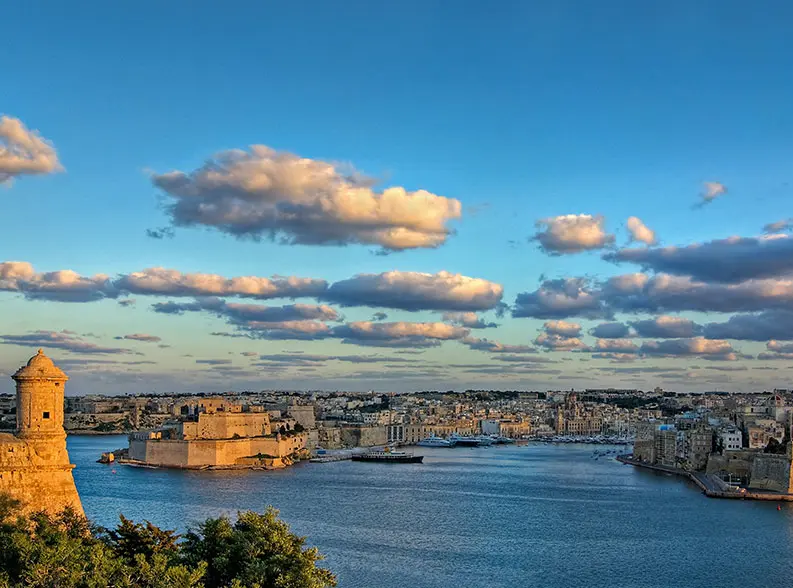While not immune to the EU’s financial woes, Malta remains a safe port in a Mediterranean storm. Gavin Haines reports.
It might be the start of a brand new year, but for many southern European countries, 2013 is predicted to offer much the same as the last; stagnant growth, economic belt-tightening and a slumbering property market.
Yet Malta, the smallest nation in the EU, is proving to be the exception to the rule. According to statistics issued by Eurostat, in the third quarter of last year, the archipelago registered the second best economic performance among the 17 Eurozone countries. Surpassed only by Estonia, Malta’s GDP increased by 1.9 per cent on the previous quarter, while on average the Eurozone economy contracted 0.6 per cent.
Buoyed by tourism, manufacturing and foreign investment, English speaking Malta has ridden the waves of recession much like it does the pure blue seas that lap around its beaches and rocky shores.
“Of course Malta has felt the backlash of the Euro’s plight, but the effects have been on the margins” explains Ray Woods of maltabuyproperty.co.uk.
“Conservative bank lending by Malta’s local banks prior to the US and European economic crisis left their balance sheets in good shape. The property sector in turn was underpinned by strong local consumer demand and an increasingly cosmopolitan expatriate population.”
Touted as the best place to retire by Yahoo! Finance, researchers from the website conducted a worldwide survey of countries and concluded that Malta was the best retirement destination thanks to its warm weather, free healthcare and low taxes.
“With over 3,100 hours of sunshine a year, an average year-round temperature of 18.9°C and English as a first language, it’s no surprise Brits flock to the Mediterranean archipelago,” gushed a spokesperson for Yahoo! Finance.
However, Malta’s economy is not just being propped up by the “grey Euro” – small companies and young professionals are being lured to the archipelago by its generous tax concessions (no council tax, no wealth tax and no inheritance tax), technical literacy and good IT infrastructure.
“Healthcare, education, accessibility and costs also play a key role and Malta passes all these tests with flying colours,” says Joseph Lupi, MD of Frank Salt Real Estate, who has seen increasing numbers of Brits moving to the islands.
“As with anything else; money and security talks.”
And according to the United Nations, it doesn’t get any safer than Malta; in 2011 it was named the safest place on earth by the United Nations in its annual World Risk Report. It is also one of the happiest; coming sixth in the European Quality of Life Survey carried out in 2008.
The tourism industry is in good shape too, which has attracted many overseas investors looking for a tidy rental income. In fact Malta is on the crest of a wave as far as visitor numbers are concerned; last month Malta Airport welcomed its 3.5 millionth tourist passenger for 2012, which is the fourth record for passenger numbers that it has made in five years.
“The fact we have started celebrating the 3.5 millionth [passenger] is indeed a certificate that, notwithstanding the harsh economic realities in our source markets, we are still doing well,” said Josef Formosa Gauci, the CEO of Malta Tourism Authority, talking to the Malta Independent.
“The continuous development of accessibility to Malta is a key factor for the further growth of tourism and these results are for all the industry to enjoy.”
Of course there is still more that can be done to lure foreigners (expats and holiday makers often find Malta’s roads and its standard of driving difficult to get used to), but it seems the archipelago is emerging as the golden child of the EU, a trend many hope will continue into 2013.
Quick facts:
- Malta charges no capital gains tax on property sales after three years of ownership.
- There are no annual property taxes.
- Incomes brought into Malta, regardless of where they are earned, are taxable at a rate of up to 35 per cent. High Net Worth Individuals can, however, take advantage of a flat tax rate of 15 per cent, which is subject to a minimum tax liability of €20,000 (£15,000).
- Technically there is no inheritance tax in Malta, although beneficiaries will be liable to a 5 per cent transfer tax on the value of the property.
Source: The Good Property Guide by Rita Karia-Hopkins




 Back to Blogs
Back to Blogs



